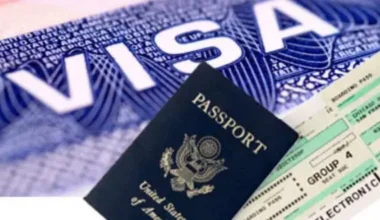Getting into medical school was not an easy feat for me. It took two attempts before I finally succeeded. Reflecting on my journey, I realize that I could have made it on the first try if I had approached it differently.
My first attempt taught me valuable lessons, and with persistence and a new strategy, I achieved my goal the second time around.
Early Challenges
I attended a small secondary school, which meant I had fewer competitors, but I couldn’t gauge my intelligence relative to students from larger schools. I knew that to secure a spot in medical school, I had to compete with the best from across the country. In 2016, I took my WAEC exams and received mediocre results: 2Bs, 5Cs, 1D, and 1E, with no A grades. However, I passed all the compulsory subjects needed for medical school in Nigeria.
The same year, the National Universities Commission (NUC) banned post-UME and introduced a cut-off point system, which gave 50% weight to JAMB scores and 50% to WAEC results. I calculated my total mark and realized I needed a high JAMB score to be competitive, especially if I wanted to attend a prestigious university like UNILAG.
First Attempt
In 2017, I registered for JAMB and chose to apply to LASU’s medical program, thinking it would be less competitive than UNILAG. I studied hard, reading biology, physics, and chemistry texts at every opportunity. However, my approach was unstructured, and I didn’t have a clear study plan. I scored 256 in JAMB, which was lower than I expected. This led to self-doubt, especially when friends who seemed to study less scored higher.
After my first attempt, I was advised to switch to a less competitive course, but I remained determined to pursue medicine. I decided to re-strategize and prepare more effectively for my next attempt. I met with a school proprietor who advised me to focus on JAMB preparation using the syllabus and recommended textbooks. He also suggested applying to the University of Ibadan (UI), which did not consider O-level results once you had credits in the compulsory subjects.
I took his advice seriously, deleting social media apps to minimize distractions and focusing on my studies. I purchased textbooks and past questions for each subject and created a structured study plan. I studied from 4 PM to 12 AM daily, ensuring I fully understood each topic before moving on. I also kept track of my progress by solving past questions and reviewing my performance.
Second Attempt
In December 2017, I began preparing for my exams using the JAMB syllabus as a guide. I studied consistently for four months, ensuring I covered all topics thoroughly. By the time the exam approached, I was confident, especially in biology and chemistry. I scored 323 in JAMB, which was a significant improvement.
For the post-UME exam, I used a similar strategy, adding the Lamlad series to my study materials and seeking advice from UI students. I scored 77 in the post-UME, giving me an aggregate score that was above the cut-off mark for admission into UI’s MBBS program.
My journey taught me several valuable lessons:
- Hard Work and Diligence: There are no shortcuts to success. Hard work and persistence pay off in the long run.
- Seek Help: Don’t hesitate to seek advice from others. Many people are willing to help.
- Humility: Be open to learning from anyone. Success is what matters, not who you learned from.
- Faith: Never underestimate the power of faith and support from a higher power.
These lessons not only helped me get into medical school but also made me a better person and a more effective learner.




